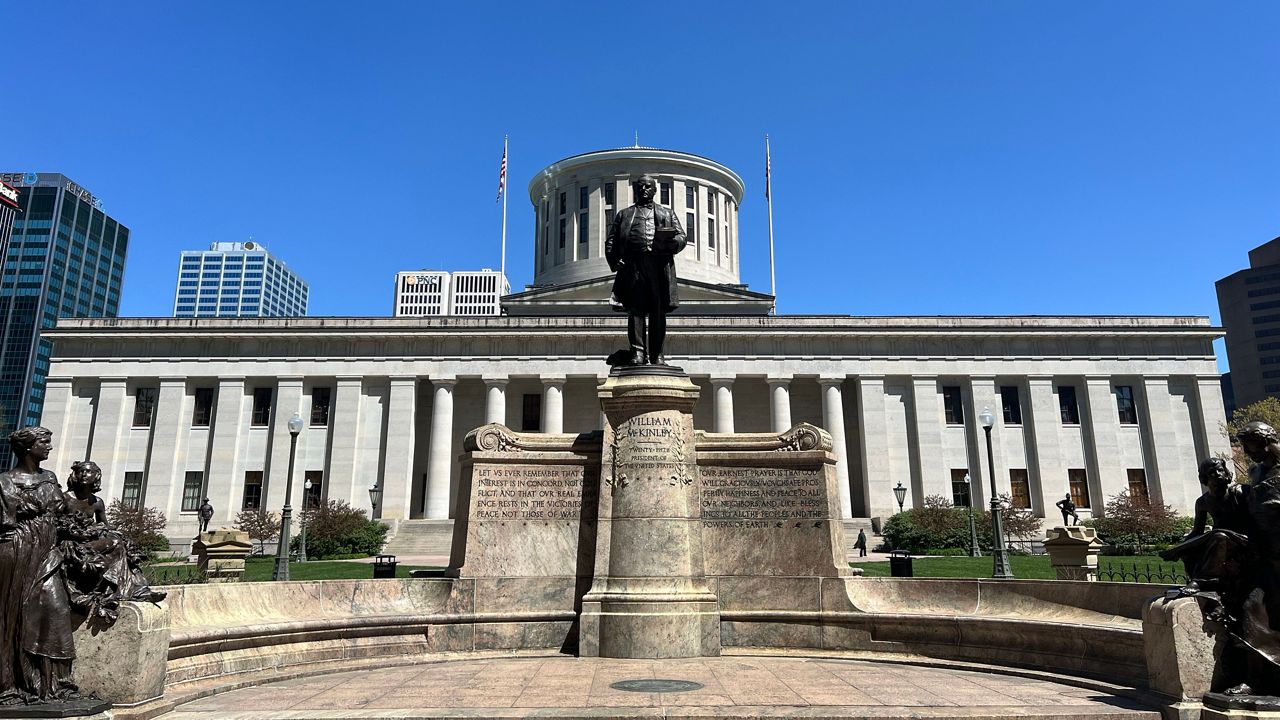OHIO — Our need for connection does not end as we age. Rather, older adults continue to be fueled by relationships, conversation, and emotional bonds.
For those living with dementia, those needs still exist, and art has proved to be a reliable pathway.
Founded by Professor Elizabeth "Like" Lokon and housed at Miami University’s Scripps Gerontology Center, Opening Minds Through Art (OMA), sparks the imagination of people living with dementia by pairing them with volunteers to make art.
“What OMA does, it connects generations: Younger students, not living with dementia, young and healthy, with older adults living with dementia,” Lokon said.
She explained without a shared goal, people can struggle to connect; students may feel awkward or unsure of what to say and things fall apart.
“But using the arts, they can build connections," she said.
"Even people living with dementia still are living, and still want to live,” said Professor Bob Applebaum with Scripps Gerontology Center.
OMA creates what he calls “no fail art,” encouraging creativity and accomplishment. It’s a shared project in which a person with dementia (the artist) has some control over what they create, from the colors they choose to what direction a piece takes.
“In that process of making original art pieces, they make decisions," Lokon said. "When they make decisions, they have to consider all the different options. They have to consider their aesthetic preferences and this can happen, no matter how impaired your brains are."
In making decisions, the artists are also making new connections in the brain, a process called neuroplasticity.
A guiding principle, core to OMA, is the importance of autonomy. It’s easy to take for granted the daily decisions we make throughout our lives, from what to wear in the morning to what to eat. As we age, many of those decisions are taken from us. OMA is there to put back the experience of decision-making into the hands and minds of older adults.







)


